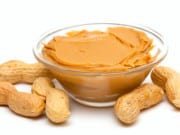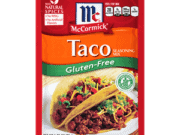Dr. Steven Wangen shares how high blood pressure could be caused by hidden food allergies, along with steps to take.
About High Blood Pressure:
According to the National Health Statistics Reports for the United States, the single most frequent diagnosis given out by doctors is “Hypertension,” commonly known as high blood pressure.
In 2006, the most recent year for these statistics, over 35 million visits to doctors resulted in a diagnosis of high blood pressure (1).
In simple terms, high blood pressure is an increase in the pressure within your arteries (your pipeline) over 140/90. This increase in pressure is much like an increase in the pressure within a pipe. The higher the pressure, the harder the pump has to work, and the harder it is to contain that pressure within the pipe.
Therefore high blood pressure is well known to increase your risk for heart disease and heart attack (damage to your pump), and to increase the risk of stroke (blow outs in the pipe). An increase in blood pressure is well recognized to be related to weight gain.
However, there are many other causes, and not everyone who is overweight develops high blood pressure. One of the more interesting and certainly overlooked causes of high blood pressure may be food allergies.
The Case for Hypertension Caused by Food Allergies:
Although not a major focus at our clinic, one of the more interesting connections to the identification and removal of food allergies from their diet has been for some patients a significant and relatively quick drop in their blood pressure.
This has not necessarily been related to a drop in their weight, although that is often another positive side effect of the treatment program. These make for interesting stories, but it also turns out that there are some published reports on the subject of food allergies and intolerances and the incidence of hypertension. In fact, one of these studies is quite large.
In 2004 a report of 3,740 gluten intolerant adults on a gluten free diet found that they had on average significantly lower blood pressure than the general population. (2)
This study did not measure their blood pressure before and after the change in their diet, but other smaller studies have. A case of a gluten intolerant patient with well monitored blood pressure that hovered in the 150s/mid 90s prior to diagnosis showed improvement within 6 months after going gluten free, and was completely normal 128/80 within 15 months. (3)
But more dramatic results have been reported in larger studies involving more food reactions. A study of 15 people with hypertension were found to be reactive to a different combinations of foods such as wheat, egg, dairy, orange, beef, corn, cane sugar, and yeast. In each case their blood pressure reverted to normal after removing the appropriate food(s) from their diet. And as an added bonus, everyone with migraine headaches also saw those disappear (which, believe it or not, are commonly triggered by food allergens). (4)
Summary and Steps To Take:
First, be sure to get regular check-ups. Blood pressure is one of the most common and preventable killers in the U.S. If you have high blood pressure, then be sure to get it treated by your physician. But if you have borderline high blood pressure, or if you’d like to reduce your medication or potentially eliminate it altogether, then you are strongly encouraged to look into the possibility that a hidden food allergy is contributing to your elevated blood pressure.
In fact, high blood pressure can be the only symptom that your food allergy is causing. But you may also have other health problems that will also benefit from diagnosing your food allergy (see our sister clinic website www.CenterforFoodAllergies.com).
If you’d like to learn more about these types of food allergies and their connection to your health, please schedule an appointment with us. Our expertise is in helping you discover the hidden potential within you that can dramatically improve your health.

Article Courtesy: Dr. Stephen Wangen
Founder of the Center for Food Allergies and the IBS Treatment Center
photos courtesy of IBS Treatment Center
---
1. National Ambulatory Medical Care Survey: 2006 Summary, Number 3, August 6, 2008 by Donald K. Cherry, M.S.; Esther Hing, M.P.H.; David A. Woodwell, B.A.; and Elizabeth A. Rechtsteiner, M.S., Division of Health Care Statistics.
2. West J, et al. Risk of vascular disease in adults with diagnosed coeliac disease: a population-based study. Aliment Pharmacol Ther. 2004 Jul 1;20(1):73-9.
3. Lim PO, et al. Reversible hypertension following coeliac disease treatment: the role of moderate hyperhomocysteinaemia and vascular endothelial dysfunction. Journal of Human Hypertension. 2002 Jun;16(6):411-5.
4. Grant EC. Food allergies and Migraine. Lancet. 1979 May 5;1(8123):966-9.








Shan says
Hi,
I have been diagnosed for Hyperstension for long time (10+ yrs) and I have been on medications. However, my BP never seems to stay normal. MY BP reading lately is around 175/128 as it has slowly creeped up higher and higher. Lately, I have been thinking very hard about this problem and started to suspect if this is causing from Food allegery.
How can I contact you and discuss my situation?
Regards,
Shan
Margaret says
I was diagnosed with high blood pressure about a year ago and put on medication. I happened to do a purification diet for 3 weeks through my chiropractor. The diet consisted of fruits and vegetables, and added protein halfway through. No grains, sugar, caffeine. My BP dropped back to normal 120/80 and I went off the medication. I have unfortunately gone back to the grains and some sugar and caffeine, and my BP has started creeping back up. I do believe I have a food allergy... Now I just need to figure out exactly what that is!
Baluch says
I have monitored myself, and am sure that if one suffers from food sensitivities, not only the pulse but also the blood pressure shoots up. And unless one detoxes from time to time, and also spends time working out seriously, the b.p. and pulse rate will continue to creep up. Caffeine, preservatives, gluten, dairy, chocolates - all create problems. Carrot juice helps to neutralize allergens to an extent. Good luck to all.
sj says
After trying other medications with several doctors, I've been on large doses of a beta-blocker for 20 years. It was the only thing that came close to giving 'normal' BP. Plus the main side effects being you have no zip left, no energy.
Recently I tried a no/low carb diet for weight loss..no bread at all. Within a week I was forced to cut back my meds to 1/4 the normal daily dose just so my BP didn't get too low! It still gets a little high at night (by morning) so I take my now lower dose just before sleeping. It's looking like a little more exercise might 'cure' me.
I am astounded! All this time...my malady appears to have been a simple, stupid allergy. Sheesh!
SJ
Linda Biggs says
Gluten and mammal product do that to me. Bp shoots up. Otherwise bp is wonderful. I had a severe stroke 4 yrs ago. I know now a measure 3hrs after a suspect food
دیزل ژنراتور says
Excellent article! We are linking to this great article on our website.
Patricia Mary Denman says
I have been treated for hbp for some 20 n.v years
Recently I adopted a gluten free diet due to digestive issues
I have Been on a low salycillate diet since 2004. But now my blood pressure on Valsartan is 112/ 72
I have been on bp meds for 20 years. Also on low salycillate diet since 2004. Since going gluten free 6 mos. Ago made big difference in Bp..
Rosie Knight says
I don't get this article! All the information sites I have looked on regarding food allergies say peoples blood pressure DROPS (and can go dangerously low) if they eat something they are severely allergic to.!!!